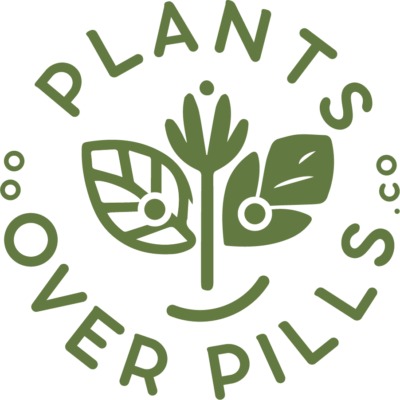Finding Relief: Will Joint Pain from Menopause Disappear?
Menopause is a natural biological process that signifies a turning point in a woman’s life. It is the cessation of menstruation and marks the end of a woman’s fertility period. Typically occurring in the late 40s or early 50s, menopause is not just a single event but a gradual process that can span several years, known as perimenopause leading up to menopause. What’s best for menopause joint pain?This transitional phase heralds significant physical and emotional changes, with one of the less discussed yet common symptoms being joint pain.
The onset of menopause brings about a myriad of changes within the body, largely attributed to fluctuating hormone levels. Estrogen, a hormone that plays a crucial role in the reproductive system, also has an influence on the health of bones and joints. As women approach menopause, the levels of estrogen begin to decrease, which can lead to an increase in inflammation, causing stiffness, swelling, and discomfort in the joints. This can significantly impact a woman’s quality of life, making daily activities more challenging and sometimes painful.
To manage and alleviate joint pain associated with menopause, it’s essential to adopt a holistic approach that includes lifestyle modifications and, in some cases, supplements. Let’s delve deeper into these strategies:
What you need to change in your Lifestyle

Exercise Regularly
Engaging in regular, moderate exercise is fundamental. Physical activities, such as walking, swimming, or cycling, can help maintain joint flexibility and build muscle strength, which in turn supports the joints. Exercise also boosts overall health and can help manage other menopausal symptoms by improving mood and sleep quality.
Maintain a Healthy Weight
Carrying excess weight puts additional pressure on your joints, particularly those that bear the body’s weight like the hips and knees. By maintaining a healthy weight, you can reduce the strain on your joints, thereby alleviating pain and preventing further damage.
Eat a Balanced Diet
Incorporating anti-inflammatory foods into your diet can help reduce joint pain. Omega-3 fatty acids, found in fish like salmon and sardines, have been shown to decrease inflammation. Fruits and vegetables, rich in antioxidants, can also help protect the joints. Additionally, ensuring adequate intake of calcium and vitamin D is crucial for bone health.
Stay Hydrated
Adequate hydration is essential for maintaining the health of your joints. Water helps to keep the cartilage in your joints hydrated and flexible, minimizing the risk of friction and wear.
Practice Stress-Relief Techniques
Stress can exacerbate joint pain and inflammation. Techniques such as yoga, meditation, or deep breathing exercises can help manage stress levels, potentially reducing the severity of symptoms.
Supplements to Consider
Glucosamine and Chondroitin: These supplements are often recommended for joint health. They may help to rebuild cartilage and reduce joint pain, although studies on their effectiveness have been mixed.
Omega-3 Fatty Acids: For those who do not consume enough omega-3s in their diet, supplements can be an alternative. They are known for their anti-inflammatory properties, which can be beneficial for joint pain.
Vitamin D and Calcium: Both are essential for bone health. Vitamin D helps the body absorb calcium, which in turn strengthens the bones and can aid in preventing joint pain.
Curcumin: ound in turmeric, curcumin has strong anti-inflammatory properties and has been shown to alleviate symptoms of joint pain in some studies.
Before incorporating any supplements into your routine, it’s important to consult with a healthcare provider to ensure they are appropriate for your individual health needs and to avoid any potential interactions with other medications.
In summary, while menopause is an inevitable phase in a woman’s life, the associated joint pain does not have to be debilitating. By adopting healthy lifestyle habits and considering certain supplements, you can manage and possibly reduce the discomfort associated with this symptom. This approach not only helps in dealing with joint pain but can also contribute to an overall healthier and more enjoyable menopausal transition.
Exercise, Exercise, Exercise
Incorporating regular physical activity into your routine can help maintain joint flexibility and reduce pain. Focus on low-impact exercises like swimming, cycling, or yoga, which are easier on the joints.
Maintain a Healthy Weight:
Excess weight can put additional pressure on your joints, exacerbating pain. A balanced diet and regular exercise can help you achieve and maintain a healthy weight.
Stay Hydrated:
Adequate hydration is vital for joint health. Water helps maintain the lubrication of your joints, reducing the risk of pain and inflammation.
Apply Heat and Cold Treatments:
Heat treatments, such as warm baths or heating pads, can relieve stiffness in your joints. Conversely, cold treatments (like ice packs) can reduce joint swelling and pain.
Dietary Adjustments Tou need to make
Anti-inflammatory Foods: Incorporate foods rich in omega-3 fatty acids, such as salmon, chia seeds, and walnuts, which can reduce joint inflammation. Also, fruits and vegetables are packed with antioxidants that can help combat inflammation.
Avoid Inflammatory Foods: Limit intake of processed foods, sugars, and saturated fats, which can aggravate inflammation and consequently, joint pain.
Best Supplements for Joint Pain During Menopause
Omega-3 Fatty Acids: These supplements, derived from fish oil or flaxseed oil, have potent anti-inflammatory properties that can alleviate joint pain.
Vitamin D: Vitamin D deficiency is linked to increased joint pain. Supplementing with vitamin D can support joint health and reduce discomfort.
Glucosamine and Chondroitin: Both are natural components of cartilage. Supplements containing these compounds may help reduce joint pain and improve function, although results can vary.
Calcium and Magnesium: Essential for bone health, these minerals can help prevent the bone loss associated with menopause, indirectly supporting joint health.
Herbal Supplements: Certain herbs, like turmeric (curcumin) and ginger, have natural anti-inflammatory properties that may help manage joint pain.
Before starting any new supplement, it’s crucial to consult with a healthcare provider, especially during menopause. Supplements can interact with medications and may not be suitable for everyone. Your healthcare provider can also recommend additional treatments, such as hormone replacement therapy (HRT), which can help manage menopause-related symptoms, including joint pain.
Don’t give up!
Joint pain during menopause can significantly impact quality of life, but it’s not an inevitable part of aging. Through a combination of lifestyle adjustments, dietary changes, and the right supplements, it’s possible to manage and alleviate this discomfort. Remember, it’s important to consult with a healthcare professional before making any significant changes to your diet or supplement regimen to ensure they align with your overall health needs.




